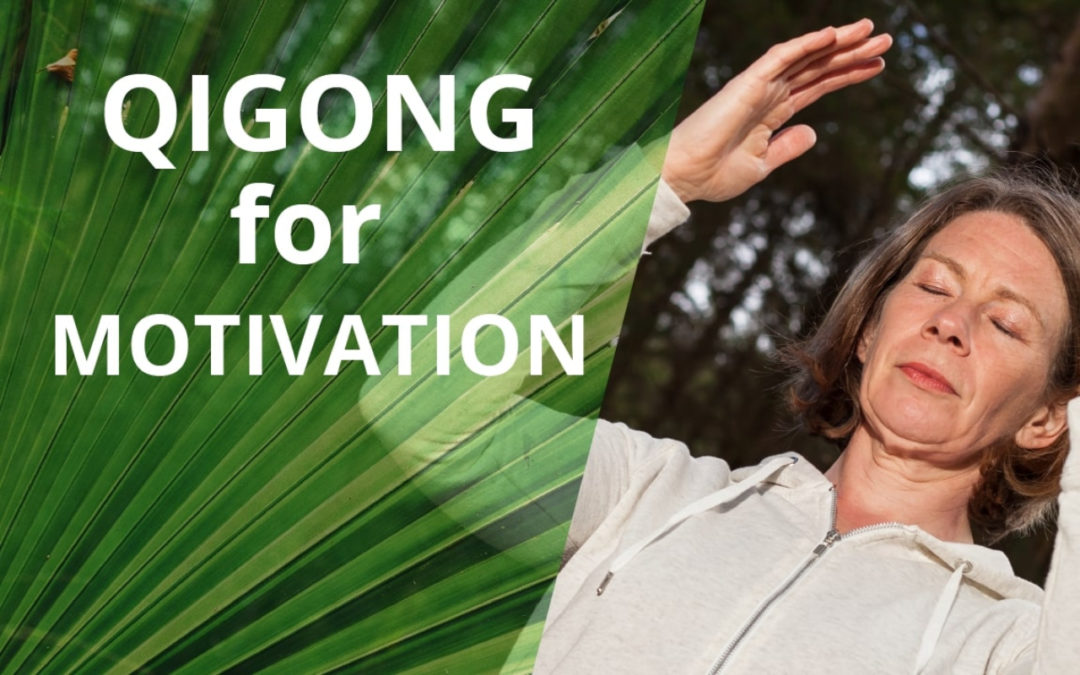
by janicetucker | 11 Aug 2017 | Qigong, Qigong & Emotional Issues, Qigong Routines
Overwhelm is something we all struggle with on one level or another. Our modern lives are so much busier than that of previous generations. We seem to have to juggle more and more things, keeping the plates spinning. If this is your constant challenge then this video will show you how to use Qigong for overwhelm and how to minimise this stress inducing state.
Janice Tucker is a practitioner of Traditional Chinese Medicine and Medical Qigong, and the founder of the Space To Relax online programme of Qigong video lessons.
Please don’t forget to subscribe to my YouTube channel by clicking the red “Subscribe” button so you don’t miss my regular videos which are full of useful health enhancing tips. These videos will help you to benefit your health and prevent illness from arising in the first place. Also please give this video a “Like” if you found it informative.
What Is Overwhelm?
Overwhelm is a FEAR of not being able to get everything done. The result is that you feel stressed, paralysed and like you have no time. You may feel stuck, not sure which thing to tackle next. A lack of direction or feeling you’re not moving forwards is common. You may feel you are not achieving everything you want to achieve. There are many other ripple effects resulting from overwhelm. Suffice to say, it’s not the best feeling!
3 Methods To Tackle Overwhelm
1. Get Present
Overwhelm often creates anxiety because of the fear of not being able to get future tasks done. Bring yourself into the present as much as possible. Do this by using Qigong for overwhelm, or a daily meditation practice. A regular routine will make a huge difference to how you feel about overwhelm.
Doing activities requiring absolute focus in the present moment are also excellent for tackling overwhelm. I go surfing which keeps me in the present as otherwise I’m in danger of falling off my board at a critical moment! Other physical activities such as mountain biking or anything that requires focus in the present moment help to diminish feelings of overwhelm. For those of you less physically active, creative activities such as painting, drawing, pottery enable you to be in the present more often. Adopt more activities like these and make them a habit. Then your feelings of overwhelm will diminish.
2. Start saying “No”
Develop the practice of not committing to people immediately. You don’t have to say yes to everything! Instead tell people that you will get back to them when you’ve had chance to check your plans or that you will check your diary and let them know. This will help you to avoid taking on too much. Also be sure to delegate as much as possible at work and at home. This will take the pressure of overwhelm off you. We are all responsible for creating our own reality. We have a choice as to whether to take on too much. If you want to tackle overwhelm something will have to change and that starts with making different choices.
3. List 3 Things To Achieve The Next Day
Do this the night before. Don’t give yourself too much to do. A huge list can be daunting when you are feeling overwhelmed. We can often feel paralysed, stuck and as though we are not moving forward. Over time this leads to a lack of confidence that we’ll ever be able to progress. You may feel like life is passing you by and you are missing out. Setting yourself the goal of only 3 things to do the next day breaks through the stagnation. It gives you a sense of progress and achievement. This leads to increased confidence that you can tackle overwhelm and you will start to feel better.
What Do I Do Next?
For more information on how to use Qigong for overwhelm head over to a previous video on my website called “Qigong for Motivation“. Here I share with you how to deal with the paralysis and stagnation that can accompany overwhelm.
To learn even more Qigong for overwhelm mimimisation go to the Space To Relax homepage. There you can sign up to receive three free video lessons which will be delivered to you by e-mail over the course of a few days. Also, for a free audio meditation “Calm Your Busy Mind In 8 Minutes” scroll to the bottom of the Space To Relax homepage.
Please don’t forget to subscribe to my YouTube channel by clicking the red “Subscribe” button. Then you won’t miss my regular videos which are full of useful health enhancing tips. Also please give this video a “Like” if you learned more about Qigong for mind chatter and how to control it.
If you are on Facebook head over to my free group, “Space To Relax Free Group” and leave any comments or questions for me there. I’ll be happy to answer them. Also, by joining this group, you will receive regular posts of Qigong articles and videos with really useful tips about how to use Qigong to improve your state of health.
https://spacetorelax.com

by janicetucker | 28 Jul 2017 | Qigong, Qigong & Emotional Issues, Qigong Routines
If you’re anything like me you’ll go thorough times when you just can’t switch off the endless mind chatter and over thinking. If this sounds like you then you’ll find this video invaluable. Below I share with you my 3 tips on how to use Qigong for mind chatter control!
Janice Tucker is a practitioner of Traditional Chinese Medicine and Medical Qigong. She is also the founder of the Space To Relax online programme of Qigong video lessons.
Please don’t forget to subscribe to my YouTube channel by clicking the red “Subscribe” button above. That way you won’t miss my regular videos which are full of useful health enhancing tips. These videos will help you to benefit your health and prevent illness from arising in the first place. Also please give this video a “Like” if you found it informative.
It can be exhausting when you just can’t seem to turn your brain off. What can often happen is that all of this chaotic brain activity ends up stagnating us. We end up feeling paralysed by the overwhelm in our brains. We might then crucify ourselves, beating ourselves up for procrastinating and not moving forward. Does any of this sound familiar?
3 Methods To Minimise Mind Chatter
1. Breathe into your lower belly. Inhaling into the lower abdomen (Dan Tian) area calms your mind. It also brings the chaotic Qi (energy) in your head down into your belly so that you feel more grounded. This will result in your mind being clearer and more focused. When you are clear and focused in your mind you become more efficient at carrying out everyday activities. This has the knock on effect of saving you time so that you get more done resulting in less stress!
2. Give yourself something else to think about. If you are distracted by busy thoughts and can’t concentrate on your breathing the giving yourself something else to think about can help. As you breathe in say the mantra to yourself, “I’m breathing in”. As you breathe out say to yourself, “Relax”. It is very difficult for the mind chatter to creep in if you are saying these words to yourself. This method is a perfect example of how to use Qigong for mind chatter and its control.
3. Dump the mind chatter. Write down any worries, things to do, emotions or distractions on a piece of paper. Once they are out of your brain and on paper you will notice a huge difference. This is because you are clearing brain space and no longer have to hold busy thoughts in your mind as they are safely on paper.
What Do I Do Next?
For more information on how to use Qigong for mind chatter head over to a previous video on my website called “How to Calm Down With Qigong” where you can learn a even more detail about the breathing methods I describe here.
To learn even more about how you can use Qigong for mind chatter minimisation go to the Space To Relax homepage. There you can sign up to receive three free video lessons which will be delivered to you by e-mail over the course of a few days. Also, for a free audio meditation “Calm Your Busy Mind In 8 Minutes” scroll to the bottom of the Space To Relax homepage.
Please don’t forget to subscribe to my YouTube channel by clicking the red “Subscribe” button. Then you won’t miss my regular videos which are full of useful health enhancing tips. Also please give this video a “Like” if you learned more about Qigong for mind chatter and how to control it.
If you are on Facebook head over to my free group, “Space To Relax Free Group” and leave any comments or questions for me there. I’ll be happy to answer them. Also, by joining this group, you will receive regular posts of Qigong articles and videos with really useful tips about how to use Qigong to improve your state of health.
https://spacetorelax.com

by janicetucker | 9 Mar 2017 | Qigong, Qigong & Emotional Issues, Qigong Practice Guidelines & General Information
What’s so interesting about Qigong is that not only does it benefit you but its influence reaches farther afield. Qigong can significantly improve your relationships and also cause positive changes in the behaviour of those around you. When you start to change for the better so do those around you! The reasons for this are what I’ll be talking to you about in this post which is Part 2 of the “Benefits of Qigong” mini series (To watch Part 1 click here).
Janice Tucker is a practitioner of Traditional Chinese Medicine and Medical Qigong. She is also the founder of the Space To Relax online programme of Qigong video lessons.
Please don’t forget to subscribe to my YouTube channel so you don’t miss my regular videos which are full of useful health enhancing tips. These videos will benefit your health and prevent illness from arising in the first place. Also please give this video a “Like” if you learned something today. 🙂
The 3 Main Benefits of Qigong In Your Relationships
1. Fewer Arguments
Practicing Qigong means that you become less stressed and more calm (this is one of the main benefits of Qigong for you). The result is that you are less irritable, tired and overwhelmed. You are therefore less snappy and short tempered with your loved ones, work colleagues, etc. You become more pleasant to be around. Consequently you are far less likely to get sucked into arguments. Ask yourself, how much patience do you have when you are exhausted compared with when you are not?
2. You Are More Valued
Another one of the main benefits of Qigong is that by increasing your energy levels you have more motivation to get out there and do things with family and friends. They then feel more valued by you so they feel happier. Your relationship with them is improved, often far beyond any expectations you might have had!
3. You Inspire Others
When others around you see you being calm, relaxed, stress free, vibrant and energetic you inspire them to be like this too.
What Do I Do Next?
If you want to improve your relationships then practice more Qigong by heading over to the Space To Relax homepage. There you can sign up to receive three free video lessons which will be delivered to you by e-mail. Also, you can download a free audio meditation “Calm Your Busy Mind In 8 Minutes” by scrolling to the bottom of the Space To Relax homepage.
Why not share the video series and audio meditation with friends and family? If everyone is enjoying the benefits of Qigong then imagine how harmonious family/work life would be! Practice in a group with your family. Children love Qigong as they think it’s magic!
If you already practice Qigong then I’d love to hear about your experiences of how it has influenced your relationships. Head over to my free group on Facebook, “Space To Relax Free Group“. There you can leave any comments or questions for me and the other group members. Also, by joining this group, you will have access to Qigong articles and videos with really useful tips about how to use Qigong to improve your state of health.
Please don’t forget to subscribe to my YouTube channel so you don’t miss my regular videos which are full of useful health enhancing tips. Also please give this video a “Like” if you learned much more about some of the lesser known (but super important) benefits of Qigong.
https://spacetorelax.com

by janicetucker | 21 Feb 2017 | Qigong, Qigong & Emotional Issues, Qigong Practice Guidelines & General Information, Qigong Routines
Recently I asked the members of my “Space To Relax Free Group” on Facebook what they would like to learn about regarding Qigong and how it can help them. One great suggestion from Kathy was about how to stay motivated, on track and avoid slipping back into bad habits. This is such a great question! Today I’m going to be talking to you about how to stay motivated and also how to use Qigong for motivation.
Janice Tucker is a practitioner of Traditional Chinese Medicine and Medical Qigong, and the founder of the Space To Relax online programme of Qigong video lessons.
Please don’t forget to subscribe to my YouTube channel by clicking the red “Subscribe” button above so you don’t miss my regular videos which are full of useful health enhancing tips. These videos will help you to benefit your health and prevent illness from arising in the first place. Also please give this video a “Like” if you found it informative.
My 7 Top Methods Using Qigong For Motivation
1. Choose something you like to do
To stay motivated for Qigong or any other exercise it is important to choose something that you like to do. By now many of you will have access to a number of Qigong methods. Choose your favourites as then you are more likely to maintain your practice.
2. Pick a regular time to practice
It is easier to stay on track with Qigong (or any good habit) if you pick the same time every day to practice. First thing in the morning works best for me as then my practice is done and I have set myself up in the best possible way for the rest of the day. Also, if I have more time at the end of the day, I’ll do more. A regular practice time will really help you to stay on track. Once you can do this, you will see how you can use Qigong for motivation in other areas of your life.
3. Keep a record of you observations
Keeping a diary or journal of your observations will allow you to see how much progress you are making. Once a few weeks have passed and you look at your journal you will see the difference between where you were before and where you are right now.
4. Practice with friends and family
Certainly with Qigong there is huge benefit in practising with friends and family. The presence of a group enhances the “Qi field” (see my blog on “What is a Qi Field?“) of everyone practising. Similarly, with other exercise such as walking, running, cycling, it is much easier to do it and stay motivated as you can encourage one another.
5. Celebrate your successes
Don’t give yourself a hard time if you don’t practice or exercise every single day. Instead focus on all the good things that you are doing. If you have set yourself a milestone, e.g. to practice 10 minutes of Qigong every day for one week, then when you achieve this CELEBRATE! Go out and do something that you love to do to celebrate that milestone. This is important.
6. Be kind to yourself
If you miss a couple of days of practice, don’t give yourself a hard time. Simply get back on track as soon as possible. Realise that you are only human. You are not a robot. You can pick up your goal and resume progressing towards it as soon as possible.
7. Start small to get motivated
If you find you have no motivation to get going then pick the tiniest thing that you feel you would like to do and just do that. Start with a small thing and build it up slowly. Over time you will find that things do get easier for you to carry forward with some momentum.
If you want to start small and learn some Qigong by practising for a few minutes each day, or getting really clever, and learning how to integrate Qigong into your day then head over to the Space To Relax homepage. There you can sign up to receive three free video lessons which will be delivered to you by e-mail over the course of a few days. Also, for a free audio meditation “Calm Your Busy Mind In 8 Minutes” scroll to the bottom of the Space To Relax homepage to sign up for that.
I’d love to hear what you do to stay motivated. What do you do to stop yourself from slipping back into bad habits? How do you use Qigong for motivation? You can head over to my free group on Facebook, “Space To Relax Free Group” and leave any comments or questions for me there. I’ll be happy to answer them. Also, you will receive regular postings with useful tips about how to use Qigong to improve your state of health.
Please don’t forget to subscribe to my YouTube channel by clicking the red “Subscribe” button on my channel page. That way, you won’t miss my regular videos which are full of useful health enhancing tips. Also please give this video a “Like” if you learned much more about how to use Qigong for self care.
https://spacetorelax.com

by janicetucker | 19 Dec 2016 | Qigong, Qigong & Emotional Issues, Qigong Routines
This week’s video has a topical theme coming up to Christmas and the holiday season. Of course many people love Christmas but I also meet those who don’t. The reason for this is that they get together with the family and very quickly start to feel a sensation of claustrophobia and stress. People start niggling at each other which makes them want to get out of the situation. They need a bit of space. Myself and my best friend describe this feeling as a feeling of being “peopled out”. When you are “peopled out” you feel like you have had too many people around you for too long! In the video above I talk to you about how to use Qigong for stress relief so that you can cope with the “peopled out” feeling and attain peace of mind over the holiday period.
Janice Tucker is a practitioner of Traditional Chinese Medicine and Medical Qigong, and the founder of the Space To Relax online programme of Qigong video lessons.
Please don’t forget to subscribe to my YouTube channel by clicking the red “Subscribe” button above so you don’t miss my regular videos which are full of useful health enhancing tips. These videos will help you to benefit your health and prevent illness from arising in the first place. Also please give this video a “Like” if you found it informative.
The “Peopled Out” Feeling
When I asked my best friend to describe the “peopled out” feeling she sent me an e-mail with the following superb description of what it is like for her. Is there any trigger, feeling or thought you can identify below?
Triggers
1. Multiple people are demanding things of me simultaneously, without consideration for my priorities.
2. People trying to help me do something that I am perfectly capable of doing.
3. Feeling that I need to engage in small-talk conversations.
4. I have not been able to go outside / have not seen the sky (at least once a day).
5. I am physically uncomfortable (e.g. sore back, stomach ache).
Feelings
• Irritated
• Anxious
• Snappy
• Crowded
• As though I am a pressure cooker on simmer, aware that I need to release the pressure valve or an explosion may occur!!
• Mortified if I do ‘explode’
• Self conscious (exposed), everyone can see how inept and unpleasant I am.
Thoughts
• Rapid re-planning of the “to do list” that I carry around in my head in order to “fit in” others’ priorities, so lots of playing out of scenarios in my head.
• Lots of “I have to…” thoughts (when I really don’t have to!)
• Resentful thoughts about why these people have to be in my space when all I want to do is…..
• Guilty thoughts about having resentful thoughts
• Resentful thought about how “these people” make me feel guilty
• I don’t fit in, I’m not normal
• I’m odd
From the above description you can see how these feelings and thoughts can trigger each other. Before you know it you end up in a vicious spiral connected to having people around you the whole time when you are not comfortable.
Top Tactics To Deal With Feeling “Peopled Out”
1. Get up early (before everyone else) so as to have some alone time, outside – do some tai chi or Qigong (avoid an audience!). Stay up later than everyone else
2. Make excuse that dog needs a walk or I just have to run over to the neighbour to return something.
3. Reiterate my preferences about doing my own ‘chores’ (as they are actually fun for me). Politely reject offers of ‘help’ explaining that this is what I do for relaxation and please don’t take it away from me.
4. Avoid large social gatherings. Certainly avoid hosting large social gatherings.
5. Qigong for Stress Relief: Abdominal Breathing (Lesson 1 in the free Space To Relax Video Series).
6. Qigong for Stress Relief: Discharge Waste Qi With Vibration (Lesson 3 in the free Space To Relax Video Series).
What Do I Do Next?
If you would like to learn more about how to use Qigong for stress relief and the feeling of being “peopled out” you can sign up on the Space To Relax homepage to receive three free video lessons which will be delivered to you by e-mail. Also for a free audio meditation “Calm Your Busy Mind In 8 Minutes” scroll to the bottom of the Space To Relax homepage to sign up for that.
Please don’t forget to subscribe to my YouTube channel by clicking the red “Subscribe” button above so you don’t miss my regular videos which are full of useful health enhancing tips. Also please give this video a “Like” if you learned much more about utilising Qigong for stress relief.
You can head over to my free group on Facebook, “Space To Relax Free Group” and leave any questions for me there. I’ll be happy to answer them. Also, by joining this group, you will receive regular postings of Qigong articles and videos with really useful tips about how to use Qigong to improve your state of health.
Please leave a comment in the comments box next to this video if you now have a clearer direction in which to go to use Qigong for stress and too many people around you!. I’d love to hear your tips as to what you do to minimise the “peopled out” feeling and how you use Qigong for stress relief. If we all share our ideas then we can all help each other to find peace of mind and enjoy the holiday season which is what it’s all about! 🙂
https://spacetorelax.com

by janicetucker | 23 Sep 2016 | Qigong, Qigong & Emotional Issues, Qigong Practice Guidelines & General Information
This video from Dr Janice Tucker is the first in a two part series about Qigong benefits. What I’d like to share with you today is specifically how Qigong benefits YOU.
Janice Tucker is a practitioner of Traditional Chinese Medicine and Medical Qigong. She is also the founder of the Space To Relax online programme of Qigong video lessons.
Please don’t forget to subscribe to my YouTube channel by clicking the red “Subscribe” button above so you don’t miss my regular videos which are full of useful health enhancing tips. Also please give this video a “Like” if you found it informative.
What Are The Main Benefits Of Qigong For You?
There are five main benefits:
1. Relaxation
Qigong offers you the benefit of relaxation both physically, mentally and emotionally. This has the effect of calming your mind and giving you much more energy.
2. Calms Mind, Adjusts Breath And Posture
The effects of these three factors lead to more energy, more strength in terms of health and also the ability to cope much more readily with day to day stress!
3. Strengthening of Health
As a Chinese medicine practitioner I love this particular benefit. Qigong helps build up your health. This makes you stronger and more resistant to disease. By doing strengthening your health you can help to prevent the onset of any illness which is the most effective way to manage your health! Head off any illness before it has the opportunity to take root in the first place.
4. Helps Treat Illness
By practising Qigong you can help slow down the progress of a disease or illness and also help speed up your recovery from illness.
5. Helps You To Live Longer
The idea that Qigong can increase your longevity makes sense when you consider the previous benefits. If Qigong helps treat illness, prevent disease and makes your body stronger then it follows that you have a good chance of living longer! Qigong practitioners are reputed to look younger than their actual age and be healthier than the next person. This is because they are continually adjusting and managing their health on a day to day basis.
If you’d like to learn more about Qigong then head over to my Space To Relax homepage. Here you can sign up to receive three free video lessons which will be delivered to you by e-mail. By practising these simple 5 minute lessons you will get a flavour of the Qigong benefits of feeling much calmer and at the same time more energetic.
If you head over to my free group on Facebook, “Space To Relax Free Group” you can leave any questions for me there and I’ll be happy to answer them. Also you can leave a comment in the comments box next to this video.
Please don’t forget to subscribe to my YouTube channel by clicking the red “Subscribe” button above so you don’t miss my regular videos full of health enhancing tips. Also please give this video a “Like” if you learned much more about Qigong benefits by reading this article.
Look out for Part 2 of Qigong Benefits which will be available very soon.
https://spacetorelax.com/







